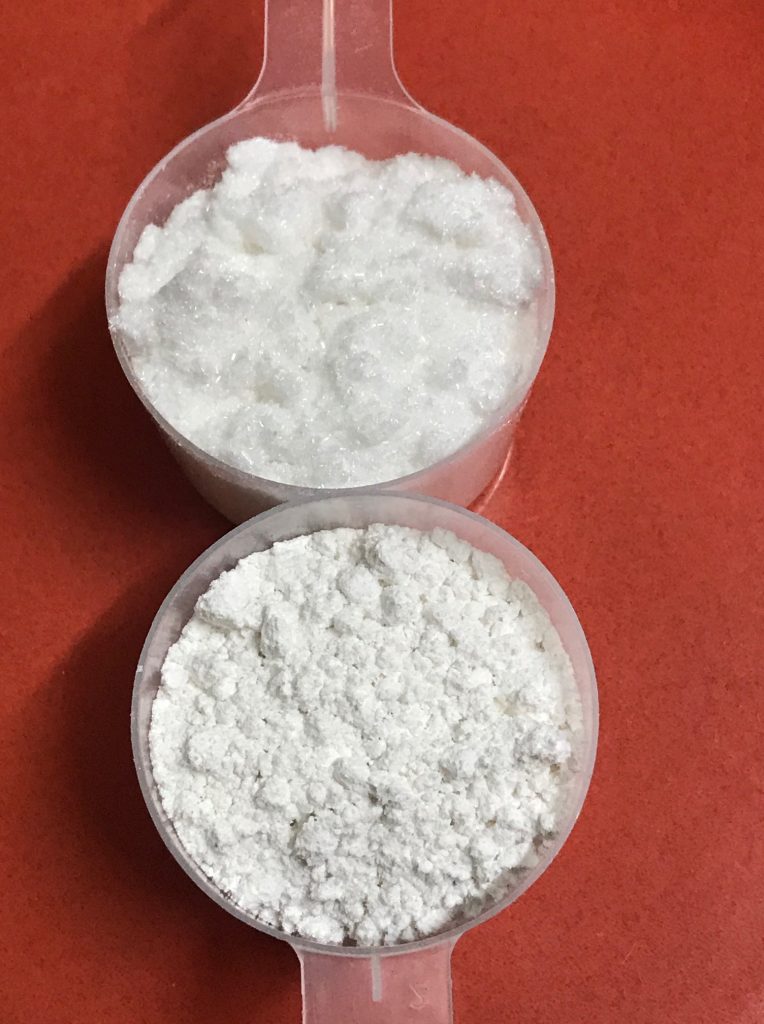Magnesium Threonate (7% Mg)
Product description
Magnesium threonate is a unique form of magnesium that combines magnesium with threonic acid, a metabolite of vitamin C. This chelated form of magnesium has been developed specifically for its ability to cross the blood-brain barrier more efficiently than other forms of magnesium, making it particularly beneficial for brain health and cognitive function.
Importance of Magnesium Threonate:
Magnesium is an essential mineral involved in hundreds of physiological processes in the body. It is necessary for the proper function of muscles, nerves, and bones, and it plays a key role in energy production, DNA synthesis, and the regulation of blood pressure. While magnesium is abundant in foods like leafy greens, nuts, seeds, and whole grains, many people do not get enough magnesium through their diet alone.
Magnesium threonate stands out because it is able to more effectively reach the brain, making it an ideal choice for addressing cognitive and neurological health. The threonate component helps magnesium penetrate the cell membranes in the brain, offering potential benefits for memory, learning, mood, and overall brain function.
Benefits of Magnesium Threonate as a Supplement:
Enhanced Cognitive Function and Brain Health:
- Improved Memory: Magnesium threonate has been shown in animal studies to improve memory and learning abilities. It supports synaptic plasticity, which is essential for memory formation and cognitive flexibility. In human studies, it has demonstrated potential for enhancing working memory, particularly in older adults.
- Neuroprotection: Magnesium plays a critical role in protecting neurons from damage and supporting brain health. By increasing magnesium levels in the brain, magnesium threonate may help protect against neurodegenerative diseases such as Alzheimer’s disease and age-related cognitive decline.
- Boosts Neuroplasticity: Neuroplasticity is the brain’s ability to adapt and reorganize itself in response to learning or injury. Magnesium threonate is believed to enhance this ability by improving synaptic connections in the brain, which can contribute to better cognitive performance.
Improved Sleep Quality:
- Promotes Relaxation: Magnesium is known for its calming effects on the nervous system. It helps regulate neurotransmitters such as GABA, which promotes relaxation and can improve the quality of sleep. Magnesium threonate’s ability to cross the blood-brain barrier makes it especially effective in promoting deeper, more restful sleep.
- Supports Healthy Sleep Cycles: By boosting magnesium levels in the brain, magnesium threonate may help restore normal sleep patterns and address issues like insomnia, particularly in individuals with magnesium deficiency.
Mood and Mental Health Support:
- Alleviates Anxiety: Magnesium has been linked to the regulation of the stress response and mood stabilization. Magnesium threonate may be especially beneficial for reducing anxiety and stress due to its impact on the central nervous system.
- Supports Mental Well-Being: Magnesium threonate can also help balance neurotransmitters that regulate mood, including serotonin and dopamine, which may support the prevention and management of mood disorders, such as depression.
Brain Aging and Cognitive Decline Prevention:
- Supports Healthy Aging: As we age, magnesium levels in the brain tend to decline, which can contribute to cognitive decline and neurological disorders. Magnesium threonate has been studied for its potential to reverse age-related decreases in magnesium concentration in the brain, thereby supporting cognitive function and reducing the risk of neurodegenerative conditions.
- Potential Alzheimer’s Disease Prevention: Some animal studies suggest that magnesium threonate may help slow or even reverse cognitive decline associated with Alzheimer’s disease by promoting neurogenesis (the growth of new brain cells) and improving synaptic function.
Improved Focus and Learning:
- Cognitive Enhancement: Magnesium threonate has been shown to improve focus and concentration, making it beneficial for those looking to enhance their learning capacity. The enhanced synaptic plasticity and neuroprotection provided by magnesium threonate contribute to sharper mental clarity and improved cognitive performance.
Support for Overall Magnesium Deficiency:
- Magnesium Supplementation: Magnesium deficiency is common and can lead to symptoms such as muscle cramps, fatigue, irritability, and poor sleep. Magnesium threonate is an effective way to increase magnesium levels in the body, with the added benefit of specifically enhancing brain function.
- General Health Benefits: In addition to its brain health benefits, magnesium plays a role in muscle function, energy production, and cardiovascular health. Magnesium threonate can help ensure optimal magnesium levels for overall health and well-being.
Why Magnesium Threonate is Different:
Blood-Brain Barrier Penetration:
- One of the key advantages of magnesium threonate is its ability to cross the blood-brain barrier (BBB) effectively. The blood-brain barrier is a protective shield that prevents certain substances from entering the brain, but magnesium threonate is small enough and chemically structured in such a way that it can pass through this barrier more easily than other forms of magnesium, such as magnesium oxide or citrate.
Targeted Action in the Brain:
- Unlike other forms of magnesium that have a broader effect on the body, magnesium threonate is specifically formulated to increase magnesium concentrations in the brain. This makes it especially beneficial for brain health, memory, and cognitive function.
Forms of Magnesium Threonate Supplements:
Magnesium threonate is typically available in capsule or powder form, and it is often marketed under the brand name Magtein, a proprietary formulation developed to enhance magnesium’s effects on the brain. The dosage will vary depending on the product, but typical recommendations range from 1,000 mg to 2,000 mg per day, providing approximately 144 mg to 288 mg of elemental magnesium.


